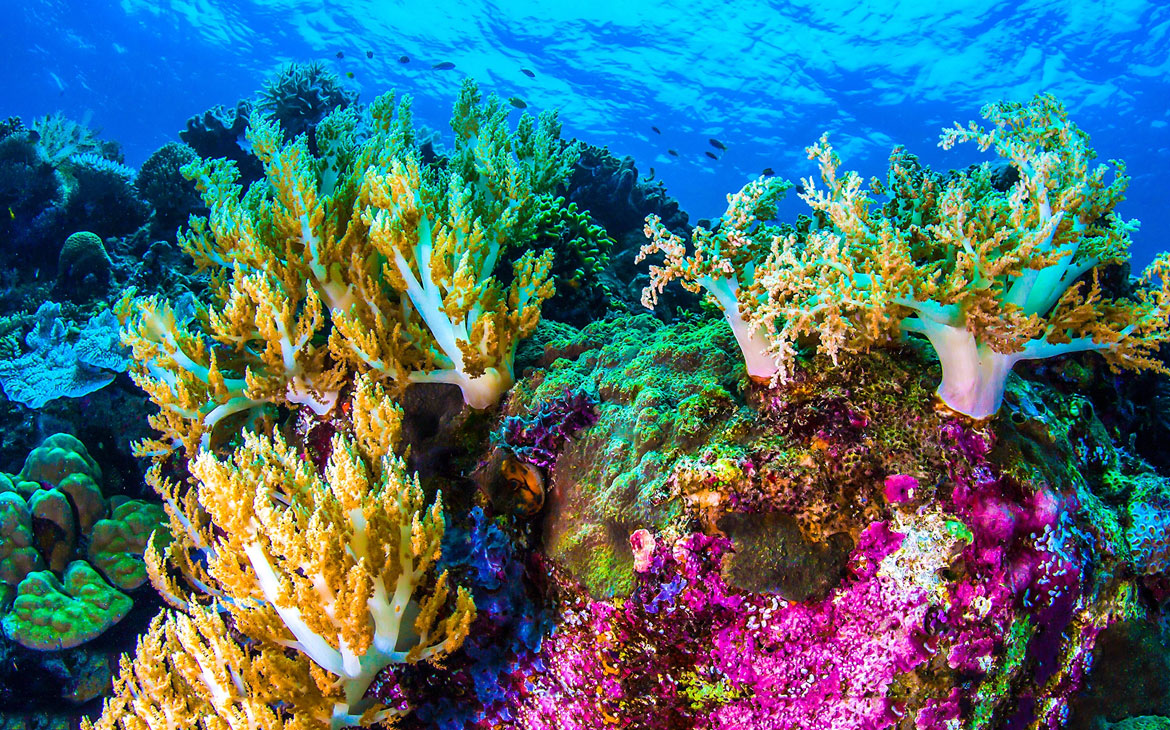Climate change is a big problem for corals, the colony-forming animals that provide a home to an estimated 25% of marine life. Ocean acidification in particular, caused as the ocean absorbs carbon dioxide from the atmosphere, is a grave concern for stony corals, because it makes it harder for the animals to passively precipitate skeletons made of calcium carbonate, the same molecule found in antacids for heartburn and indigestion. Now, scientists have suggested that corals have some active control over their skeletal growth—and that it may protect them from the worst ravages of ocean acidification. To find out how corals build their “bones,” scientists used ultrahigh-resolution microscopic imaging to watch the common stony coral, Stylophora pistillata, construct its frame. The images showed the coral secreting a template of acidic proteins that caused calcium carbonate—produced from calcium and carbonate ions in the surrounding water—to accrete into mineral crystals, forming the core of the skeleton. This provides the strongest evidence yet in favor of a biologically-controlled coral skeletal growth, the team reports today in Science. And since the acidic proteins are able to function at a much wider pH range than suspected, the scientists say that corals can continue to build reefs, even as the ocean acidifies. But that doesn’t mean that coral reefs are in the clear. First, they still need the calcium carbonate building blocks that make their homes—which are expected to be scarcer in an acidifying sea. Second, they’ll still be under dire threat from warming waters and algal blooms that can lead to coral bleaching and death.
Article Credit: https://www.sciencemag.org

